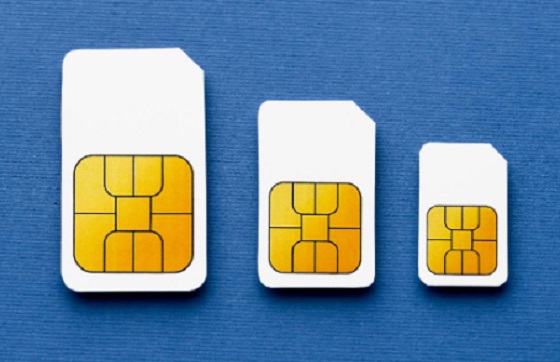Great Reset
Canadian author with cerebral palsy says nurse called her ‘selfish’ for refusing euthanasia

From LifeSiteNews
She was shamed by a nurse in 2019 for refusing MAiD at Medicine Hat Regional Hospital
In 2019, an Alberta nurse reportedly told Christian author Heather Hancock that she was “selfish” for not ending her life through the Medical Assistance in Dying (MAiD) euthanasia program.
In a July 12 interview with the Daily Mail, Heather Hancock, a 56-year-old Christian author who suffers from cerebral palsy, said that she was shamed by a nurse in 2019 for refusing MAiD at Medicine Hat Regional Hospital in Alberta.
According to Hancock, during a lengthy hospital stay in 2019 for a bout of muscle spams, a nurse told her while helping her to the bathroom that Hancock “should do the right thing and consider MAiD,” and that her refusing MAiD was her “being selfish” and she is “not living” but “merely existing.”
Hancock recalled feeling “gobsmacked” and told the nurse that her life had value even if she spent most of it in a wheelchair.
“You have no right to push me to accept MAiD,” she says she told the nurse.
“They just view me as a drain on the medical system and that my healthcare dollars could be spent on an able-bodied person,” Hancock told the Daily Mail.
In addition to the alleged 2019 incidents, Hancock says she has been routinely encouraged to end her life via euthanasia.
Hancock, who has cerebral palsy, says she has been encouraged to take MAiD on three separate occasions since Canada launched its euthanasia program in 2016.
Hancock currently lives in an assisted-living center in Moose Jaw, Saskatchewan. Despite her disability, she remains an active writer and activist against Canada’s growing euthanasia program.
Unfortunately, Hancock’s experience is not unique as many Canadians have been reportedly offered MAiD.
In May, LifeSiteNews reported on a Canadian man who felt “completely traumatized” and violated that he was offered MAiD “multiple times” instead of getting the proper care he needed while in the hospital.
First introduced in 2016, MAiD was initially only available to those who were terminally ill. However, in 2021, the Trudeau government expanded the deadly practice to be available to those who were not a risk of death, but who suffered from chronic illness.
While MAiD does not yet apply to the mentally ill, this is not due to a lack of trying on behalf of the Trudeau government, who decided to delay the expansion of euthanasia to those suffering solely from such illnesses until 2027 following backlash from Canadians and prominent doctors.
The most recent reports show that MAiD is the sixth highest cause of death in Canada. However, it was not listed as such in Statistics Canada’s top 10 leading causes of death from 2019 to 2022. When asked why MAiD was left off the list, the agency explained that it records the illnesses that led Canadians to choose to end their lives via euthanasia, not the actual cause of death, as the primary cause of death.
According to Health Canada, in 2022, 13,241 Canadians died by MAiD lethal injections. This accounts for 4.1 percent of all deaths in the country for that year, a 31.2 percent increase from 2021.
While the numbers for 2023 have yet to be released, all indications point to a situation even more grim than 2022.
armed forces
Yet another struggling soldier says Veteran Affairs Canada offered him euthanasia

From LifeSiteNews
‘It made me wonder, were they really there to help us, or slowly groom us to say ‘here’s a solution, just kill yourself.’
Yet another Canadian combat veteran has come forward to reveal that when he sought help, he was instead offered euthanasia.
David Baltzer, who served two tours in Afghanistan with the Princess Patricia’s Canadian Light Infantry, revealed to the Toronto Sun that he was offered euthanasia on December 23, 2019—making him, as the Sun noted, “among the first Canadian soldiers offered therapeutic suicide by the federal government.”
Baltzer had been having a disagreement with his existing caseworker, when assisted suicide was brought up in in call with a different agent from Veteran Affairs Canada.
“It made me wonder, were they really there to help us, or slowly groom us to say ‘here’s a solution, just kill yourself,” Baltzer told the Sun.“I was in my lowest down point, it was just before Christmas. He says to me, ‘I would like to make a suggestion for you. Keep an open mind, think about it, you’ve tried all this and nothing seems to be working, but have you thought about medical-assisted suicide?’”
Baltzer was stunned. “It just seems to me that they just want us to be like ‘f–k this, I give up, this sucks, I’d rather just take my own life,’” he said. “That’s how I honestly felt.”
Baltzer, who is from St. Catharines, Ontario, joined up at age 17, and moved to Manitoba to join the Princess Patricia’s Canadian Light Infantry, one of Canada’s elite units. He headed to Afghanistan in 2006. The Sun noted that he “was among Canada’s first troops deployed to Afghanistan as part Operation Athena, where he served two tours and saw plenty of combat.”
“We went out on long-range patrols trying to find the Taliban, and that’s exactly what we did,” Baltzer said. “The best way I can describe it, it was like Black Hawk Down — all of the sudden the s–t hit the fan and I was like ‘wow, we’re fighting, who would have thought? Canada hasn’t fought like this since the Korean War.”
After returning from Afghanistan, Baltzer says he was offered counselling by Veteran Affairs Canada, but it “was of little help,” and he began to self-medicate for his trauma through substance abuse (he noted that he is, thankfully, doing well today). Baltzer’s story is part of a growing scandal. As the Sun reported:
A key figure shedding light on the VAC MAID scandal was CAF veteran Mark Meincke, whose trauma-recovery podcast Operation Tango Romeo broke the story. ‘Veterans, especially combat veterans, usually don’t reach out for help until like a year longer than they should’ve,’ Meincke said, telling the Sun he waited over two decades before seeking help.
‘We’re desperate by the time we put our hands up for help. Offering MAID is like throwing a cinderblock instead of a life preserver.’ Meincke said Baltzer’s story shoots down VAC’s assertions blaming one caseworker for offering MAID to veterans, and suggests the problem is far more serious than some rogue public servant.
‘It had to have been policy. because it’s just too many people in too many provinces,” Meincke told the Sun. “Every province has service agents from that province.’
Veterans Affairs Canada claimed in 2022 that between four and 20 veterans had been offered assisted suicide; Meincke “personally knows of five, and said the actual number’s likely close to 20.” In a previous investigation, VAC claimed that only one caseworker was responsible—at least for the four confirmed cases—and that the person “was lo longer employed with VAC.” Baltzer says VAC should have military vets as caseworkers, rather than civilians who can’t understand what vets have been through.
To date, no federal party leader has referenced Canada’s ongoing euthanasia scandals during the 2025 election campaign.
2025 Federal Election
Carney Liberals pledge to follow ‘gender-based goals analysis’ in all government policy

From LifeSiteNews
‘We will continue to update the GBA+ tool to ensure it reflects the identities and values of all Canadians, including diversity as a core value.’
Prime Minister Mark Carney’s Liberal Party is promising to effectively mandate that all government policies and initiatives be measured using “Gender Based Analyses” before being approved and implemented.
The Liberal’s “Canada Strong” election platform, under the Gender Based Analyses (GBA) tab, pledges to “ensure that every measure in this platform will be implemented with a full GBA+ analysis – so that we can continue to build Canada strong, for all Canadians.”
“A Mark Carney-led government will support and champion all Canadians, including by reviewing policies and programs using an intersectional lens. We will continue to update the GBA+ tool to ensure it reflects the identities and values of all Canadians, including diversity as a core value.”
The GBA tab also mentions “2SLGBTQI+ people” four times, three of which are related to funding promises.
It notes that a Carney-led government would protect “the values” the Charter of Rights and Freedoms was “founded on – which are under threat – and ensuring the protection of women, people with disabilities, racialized and Indigenous communities, and 2SLGBTQI+ people.”
Carney already stated his government would provide sterilizing puberty blockers to children “without exception,” calling harmful “transitioning” surgeries and chemical “treatments” a “fundamental right.”
While campaigning to become Liberal Party leader, Carney had also promised that his government would pursue an agenda of “inclusiveness” to counter U.S. President Donald Trump’s more socially conservative agenda.
His promise to promote “inclusiveness” in Canada in opposition to Trump’s agenda came only days after former Prime Minister Justin Trudeau’s Liberal government promised an extra $41.5 million in taxpayer funds to advance 106 pro-LGBT projects “across Canada.”
Carney, whose ties to globalist groups have had Conservative Party leader Pierre Poilievre call him the World Economic Forum’s “golden boy”.
Canadians will head to the polls on April 28.
-

 Business2 days ago
Business2 days agoIs Government Inflation Reporting Accurate?
-

 2025 Federal Election2 days ago
2025 Federal Election2 days agoCarney’s Hidden Climate Finance Agenda
-

 2025 Federal Election2 days ago
2025 Federal Election2 days agoStudy links B.C.’s drug policies to more overdoses, but researchers urge caution
-

 2025 Federal Election2 days ago
2025 Federal Election2 days agoWhen it comes to pipelines, Carney’s words flow both ways
-

 2025 Federal Election2 days ago
2025 Federal Election2 days agoPolls say Canadians will give Trump what he wants, a Carney victory.
-

 2025 Federal Election1 day ago
2025 Federal Election1 day agoPoilievre’s Conservatives promise to repeal policy allowing male criminals in female jails
-

 2025 Federal Election1 day ago
2025 Federal Election1 day agoCarney Liberals pledge to follow ‘gender-based goals analysis’ in all government policy
-

 Also Interesting2 days ago
Also Interesting2 days agoIf You Frequently Travel, A Second Phone Number Can Be A Cost Effective Solution






